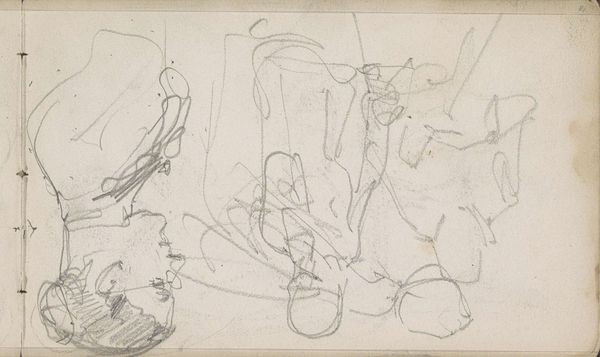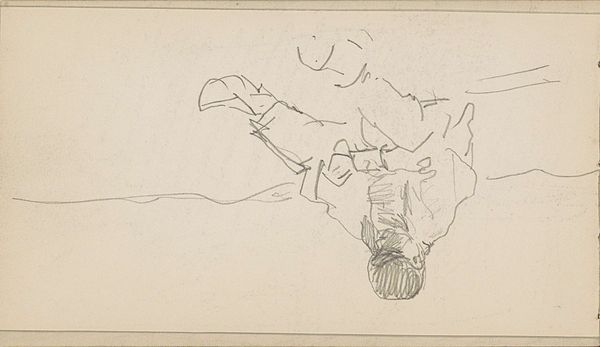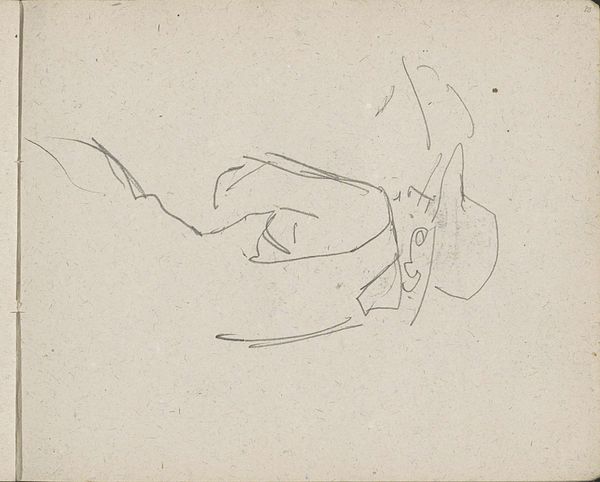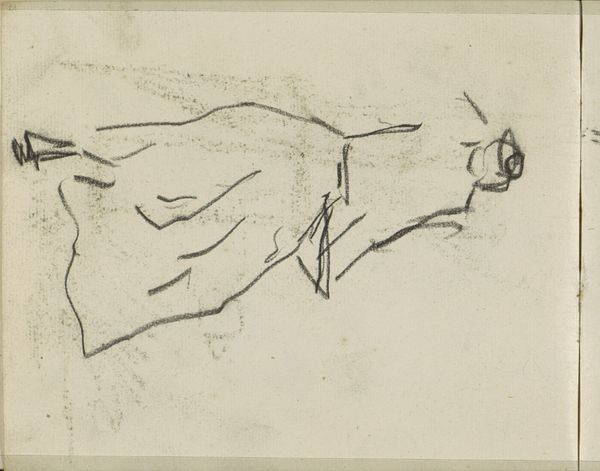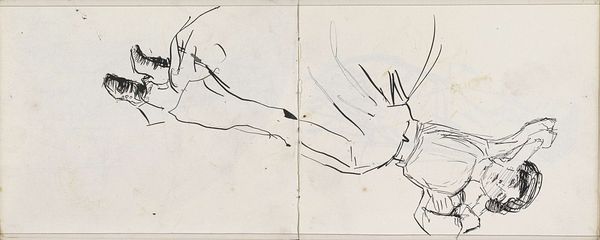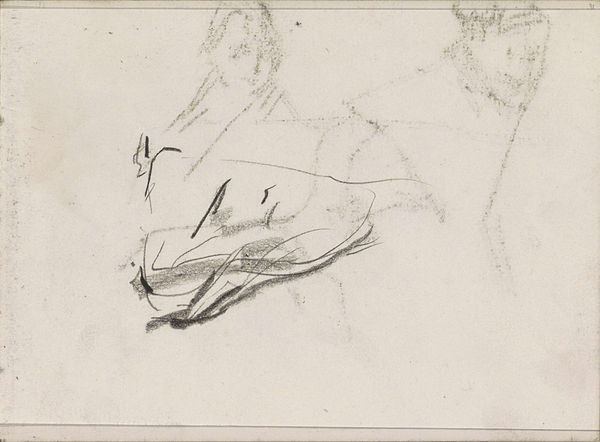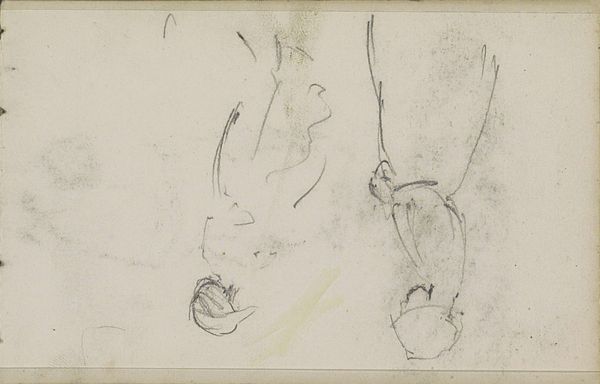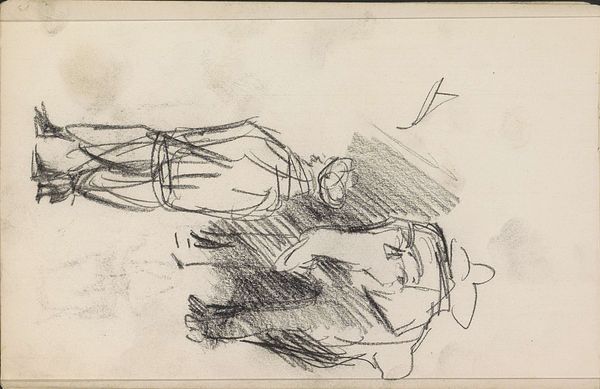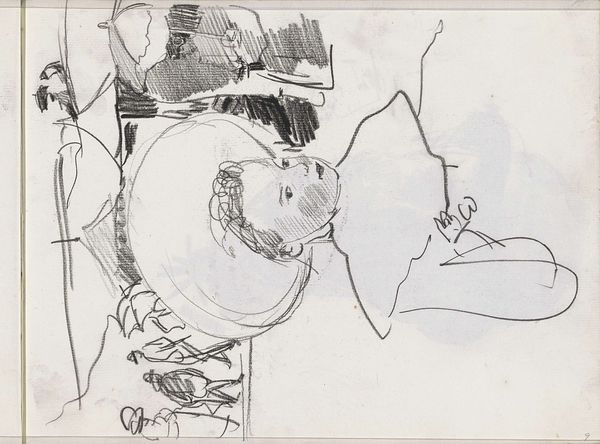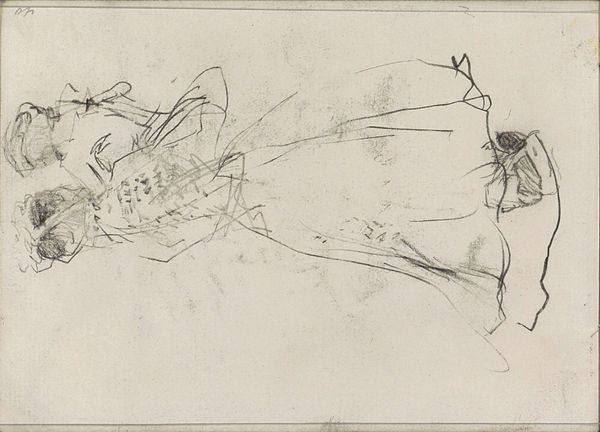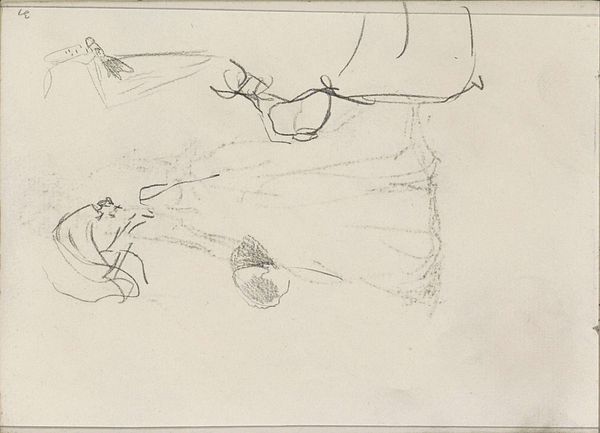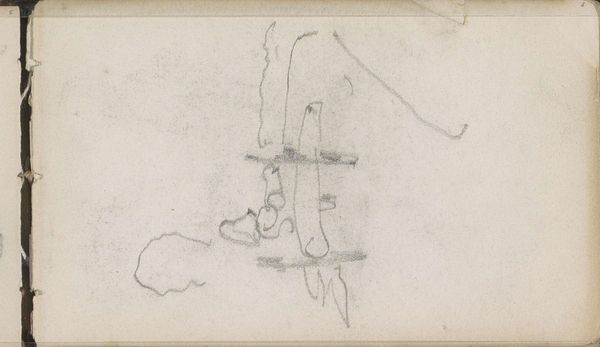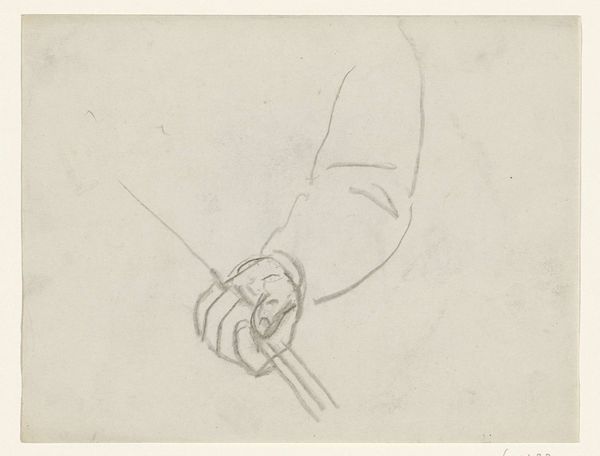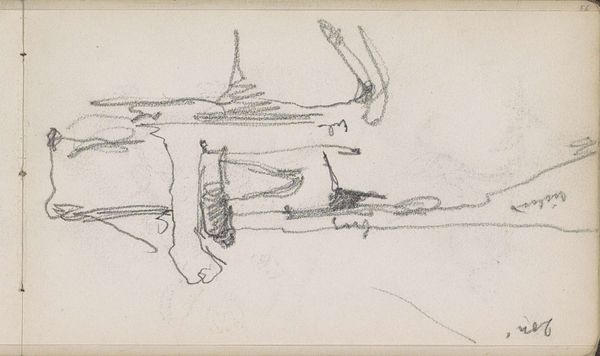
drawing, pencil
#
portrait
#
drawing
#
imaginative character sketch
#
light pencil work
#
impressionism
#
pen sketch
#
figuration
#
personal sketchbook
#
idea generation sketch
#
ink drawing experimentation
#
pen-ink sketch
#
pencil
#
sketchbook drawing
#
sketchbook art
#
realism
#
initial sketch
Copyright: Rijks Museum: Open Domain
This sketch by George Hendrik Breitner, now at the Rijksmuseum, presents figure studies alongside what appears to be an object—perhaps tools of labor. Notice the recurring motif of a 'knot' in the hands of the figure. The knot is one of humanities oldest symbols. Emerging initially as mere practical solutions in prehistoric times, in many cultures knots have gained symbolic weight; for example, to signify unity, commitment, or intricate entanglements. Consider the Gordian Knot of ancient Phrygia, a symbol of complexity famously 'solved' by Alexander the Great through decisive action. In contrast, Celtic knotwork, with its endless interwoven strands, evokes eternity and interconnectedness. Might Breitner be hinting at some kind of union? Or possibly, commitment? It's fascinating how a simple binding can evoke such varied and profound concepts across time. The act of knotting and binding engages us on a primal, psychological level, reminding us of our own connections and commitments. These symbols reappear, evolve, and take on new meanings in different historical contexts.
Comments
No comments
Be the first to comment and join the conversation on the ultimate creative platform.
